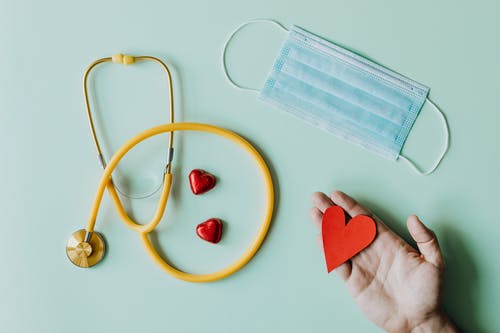Every eye constantly adjusts its focus to see details close up and far away. The visual perception process begins with the eye’s conversion of light to nerve signals transmitted through the brain. The eye’s dimensions are only about one inch, yet it is home to many complex structures.
Many issues affecting the eyes start with no discomfort or other obvious signs. The symptoms of a vision problem are not evident until the condition has progressed. We are dependent on our eyesight. Although our sight is often taken for granted yet, it is, as a matter of fact, the primary means that we absorb our surroundings.
Caring for Your Eyes
Our body’s health is often a top priority. How often do you check your eyes’ health? It’s not as complex or time-consuming as you think to care for your eyes. If you care about your eyes and vision, look at our top suggestions.
1. Know Family’s History of Eye Disease
Common eye issues may be hereditary. The risk of inheriting an eye disorder like Glaucoma or Astigmatism increases if a parent or grandparent has the condition. Knowing whether an eye disorder runs in your family can help you stay on the lookout for warning signs and lessen your chances of developing the disease.
To get a quality regular eye care in Bloomington, IN, you can search the web for the most trusted eye care centers in that area and check on their reviews.
2. Diet and Exercise
Eye health requires many different nutrients that are consumed as part of the form of a balanced diet. It is believed that eating fish high in Omega-3 fatty acids, like salmon, tuna, and mackerel can mitigate dry eyes. in the aging process.
Cataracts and diabetic retinopathy are two major eye problems that might be made more likely by being overweight. Routine physical activity is a recommended way to maintain weight and reduce your risk of developing illnesses linked to weight gain.
3. Smoking Cessation and Alcohol Abstinence
Free radicals pose a risk as particles, and smoking can increase their numbers. They can affect the body’s ability to take in nutrients from food and accelerate the process of aging. Zinc and lutein are two of the necessary vitamins and minerals for good eyesight.
In addition to increasing your risk of cataracts and macular degeneration caused by age, alcohol can also affect your vision by reducing sensitivity to light and blurring color distinctions by narrowing your pupils.
4. Protect Eyes From Harmful Rays and Radiation
Excessive exposure of your eyes to sunlight’s rays may cause permanent damage to your eyes which can cause blindness. Therefore, it’s crucial to always wear protective eyewear when outside in the sun. Make sure to take frequent breaks when you are required to sit for long periods on a computer screen. A good tip is to take a twenty-second break every 20 minutes and concentrate on a 20-foot distance far away. If you do this, then you might be able to lower the chances of experiencing eyestrain.
5. Regular Eye Tests
As we age, our eyesight will deteriorate. Nothing can prevent this, but regular eye examination can prevent significant vision problems and cure the issue before it becomes noticeable. Eye issues should not be overlooked. A visit to an optician is recommended when you’ve noticed signs of changes to your eyes, like more frequent itchiness, increased water, irritation, or floating.

